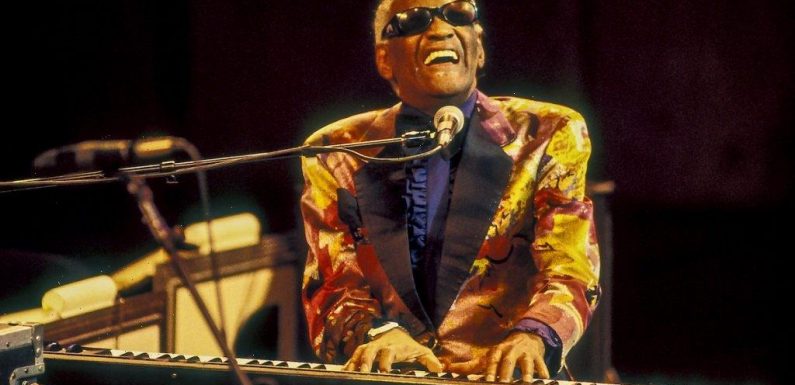
Lately, a lot more attention is being paid to mental health, and celebrities are using their considerable platforms as a place to reshape the conversation we have around stress, trauma, and resources for treatment. The conversations we’re having around the mental health needs of a star athlete like Naomi Osaka demonstrate a shift in perspectives that is long overdue.
Ray Charles came of age and rose to fame in a different time period, and the understanding of mental health wasn’t nearly as nuanced or considerate. Many assumed that Charles’ early struggles were a direct result of the loss of his eyesight and the traumatic event of witnessing his brother’s death, but Charles’ own understanding of his mental health indicates it was his mother’s death that left him struggling.
Ray Charles struggled as a teenager and beyond
Ray captures Charles’ legacy in a heartfelt and endearing way, but some critics have suggested that it was too smooth around the edges and left out the real ruggedness of Charles as a man. As David Ritz — a biographer for Charles — wrote in Slate, “Ray is a saccharine movie while Ray himself was anything but a saccharine man. He was a raging bull.”
Charles’ early years were marked with struggle. He had a heroin addiction and a reputation for womanizing and complicated interpersonal relationships. Though he did eventually stop using heroin, he turned to other vices to fill the void. As Charles said of his unapologetic use of gin and marijuana on a daily basis, “Just like smack never got in the way of my working, same goes for booze and reefer. What I do with my own body is my own business.”
Ray Charles pointed to his mother’s death as a catalyst for his trauma
The film Ray creates a narrative of Charles’ mental health struggles that is rooted in guilt over witnessing his brother’s death. Charles was only five years old when the tragedy occurred, and he began to lose his eyesight very soon after. There’s something poetic about this story, but Ritz insists it isn’t true.
Charles’ struggles did not begin until much later. While he was 15 and away at the School for the Deaf and Blind, his mother died. Charles explained, “that had me reeling. For days I couldn’t talk, think, sleep or eat. I was sure-enough going crazy.” The film doesn’t spend much time on this event or illustrate the time that Charles spent away at school in any detail. Ritz feels like this decision misses the mark, ignoring a crucial part of Charles’ development and a trauma that would lead to his only real “nervous breakdown.”
Ray Charles’ influence is far-reaching and long-lasting
Charles was born in 1930 in Albany, Georgia, and his early life was marked with trauma. As Biography.com reports, Charles witnessed his younger brother drown at a very young age, and soon after, he started to lose his own eyesight. By the age of 7, he was blind. His mother sent him to the Florida School for the Deaf and Blind, and it was there that he learned to read and write music in Braille, opening up doors to a truly remarkable musical career.
By the time he was a teenager, he was on the road performing music. His early works were seen as an imitation of Nat King Cole, but he soon transformed the music into something all his own. Charles’ unique blend of gospel and R&B gave way to soul, a new genre that he ushered into existence.
Charles would go on to earn the nickname “The Genius” as he racked up Grammy Awards and refused to be hemmed in by anyone genre or set of expectations. His life was captured in the critically-acclaimed biopic Ray with Jamie Foxx taking on the iconic role. Though he died in 2004, Charles’ legacy continues on through his still-popular music and his unending influence on modern-day musicians of many different stripes.
Source: Read Full Article
